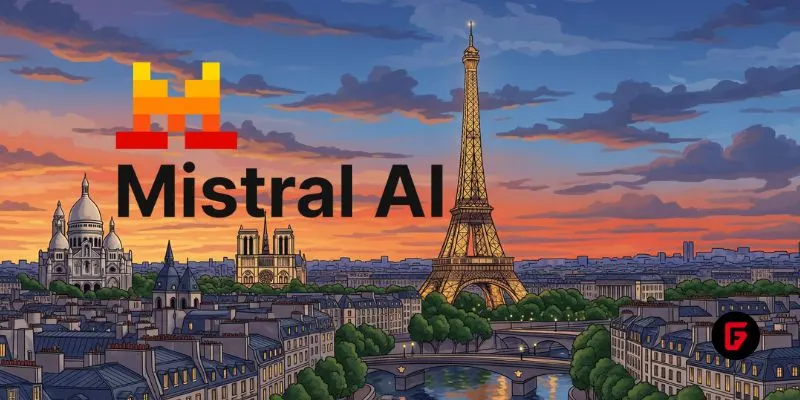Is Mistral AI Europe’s Answer to Tech Independence?
In the fast-shifting world of artificial intelligence, the European tech ecosystem is witnessing a watershed moment. Mistral AI, the Parisian startup led by former Meta and Google DeepMind engineers, is eyeing a colossal $1 billion funding round—with ambitions to soar to a $10 billion valuation. But is this just a funding frenzy, or is Mistral truly set to reshape Europe’s role in global AI?
What Makes Mistral AI’s Approach Distinct?
Unlike most Silicon Valley startups, Mistral AI champions open-weight, modular AI models that are not just powerful but also transparent and compliant with European data protection standards. The company’s founding team—Arthur Mensch, Guillaume Lample, and Timothée Lacroix—brings deep experience from artificial intelligence (AI) juggernauts, giving the startup instant credibility and technical firepower.
Mistral’s flagship products, Mistral Large and the innovative Mixtral series, deliver cutting-edge generative AI capabilities. These models don’t just focus on performance—they foreground openness and adaptiveness, which appeals strongly to industries like finance, defense, and healthcare that prioritize transparency, security, and compliance.
How Did Mistral Become Europe’s Most Watched AI Startup?
Since its launch, Mistral’s growth has been rocket-fueled:
€105 million seed round.
€600 million Series B raised, hitting a €5.8 billion valuation in June 2024.
Projected revenue of $60 million for 2025, with a client roster boasting names like BNP Paribas, AXA, CMA CGM, and Stellantis.
Backers include a who’s-who of global tech and investing: Nvidia, Microsoft, Andreessen Horowitz, General Catalyst, Abu Dhabi’s MGX fund, and more.
Consumer traction is equally impressive—Le Chat, Mistral’s proprietary chatbot, notched over a million mobile downloads in just two weeks post-launch, supercharged by its bundling with Free Mobile subscriptions.
Why Does Europe Need Its Own AI Giant Now?
For years, the continent has wrestled with an AI dependency problem—American and Chinese AI titans set the tone, leaving Europe as a consumer rather than a creator. The push for a European AI champion isn’t just about pride or economics—it’s about sovereignty, data privacy, and shaping the regulatory agenda.
Mistral’s GDPR-aligned, open-source strategy is tailor-made for a region laser-focused on trust and compliance. Their upcoming €8.5 billion nuclear-powered data center complex near Paris is a statement: Europe wants infrastructure autonomy at scale.
Can Mistral AI Compete With OpenAI and Anthropic?
Mistral’s timing couldn’t be better. Enterprise demand for compliant, transparent AI is surging, and Europe’s regulatory climate is maturing fast (especially with new AI laws and voluntary codes). By signing the EU’s new AI Code of Practice, Mistral aligns with both policymakers and privacy-focused clients, furthering its case as a tech sovereignty leader.
Of course, scaling at this pace in a market dominated by U.S. and Chinese heavyweights comes with risks. Revenue, not just headline funding, will be the true test. But Mistral’s committed stance—“not for sale,” long-term IPO plans, and a leadership team with deep AI roots—suggests focus and resilience.
What’s Next for Europe’s AI Ecosystem?
This fundraising round is about much more than numbers—it’s about anchoring Europe’s digital future. If Mistral AI succeeds, it could set a new precedent for European-born, globally competitive technology, raising the bar for openness, sovereignty, and innovation.
Mistral is not just building another AI unicorn. It’s catalyzing a movement, giving Europe a louder voice in how the next era of AI unfolds.














